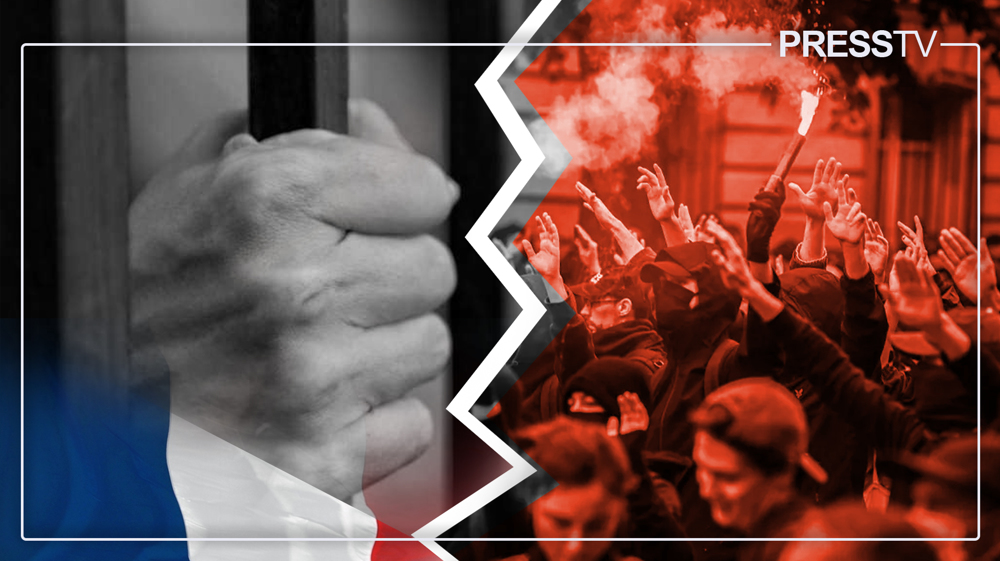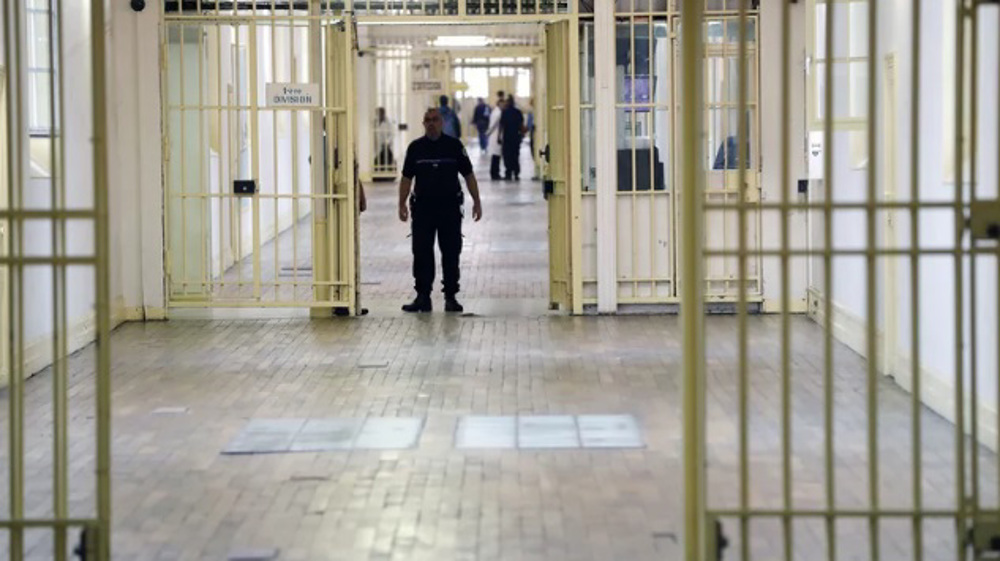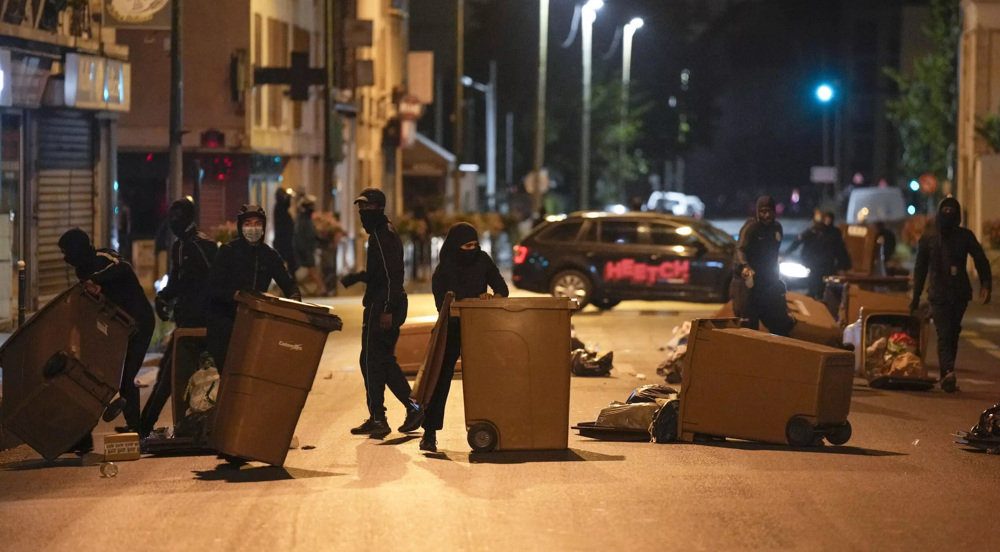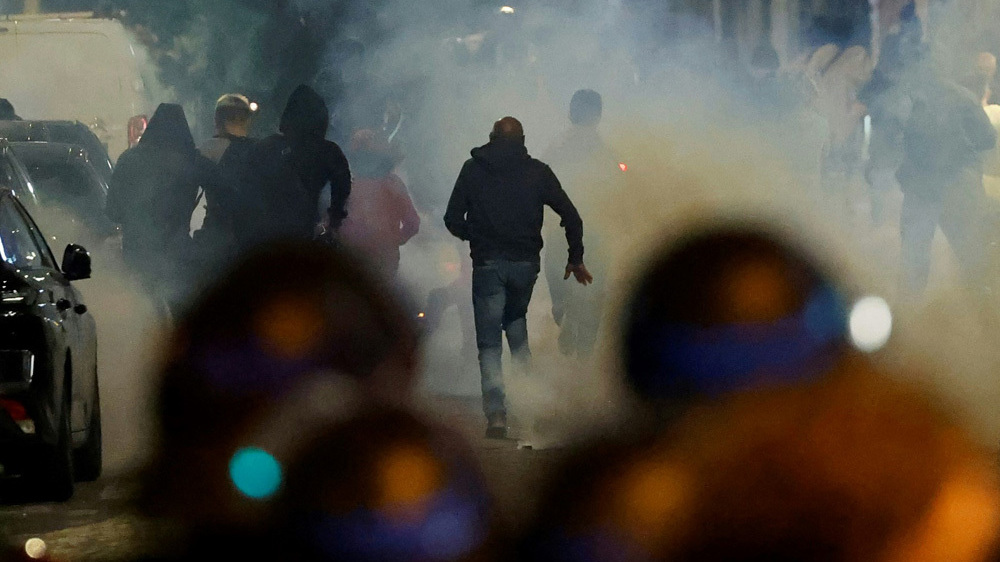Prisons in France teeming as crackdown on anti-govt protests intensifies
By Reza Javadi
The problem of prison overcrowding in France gets worse as the European country sets a new record for the number of inmates in its teeming prisons amid the government’s brutal repression of nationwide protests.
According to official figures published on Monday, a total of 74,513 people are currently languishing behind bars in the country, 2,446 more compared to 2022.
In contrast to the summer of 2020, there are 15,818 more inmates currently lodged in French jails, as overcrowding becomes a serious problem. The country’s jails are currently above 120 percent capacity.
The overall occupancy rate across French detention centers currently stands at 122.8 percent, while the proportion for remand prisons or ‘preventive detention’ stands at 146.3 percent.
According to the latest figures, French prisons are holding more inmates than their actual capacity, as 2,478 inmates have to sleep on mattresses on the floor due to the lack of space.
The country went over the 73,000 prisoner barrier for the first time last April, months before the countrywide protests over the cost-of-living crisis and pension reform.
After the rise in energy costs and living expenses in October 2022, thousands of people rallied in the streets following weeks of walkouts that crippled oil refineries and caused gasoline shortages and widespread disruptions to several sectors.
French President Emmanuel Macron blamed the high energy costs on partner countries, including the United States, Norway, and other "friendly" natural gas supplier states, saying Europeans are “paying four times more than the price you sell to your industry. That is not exactly the meaning of friendship.”
Protests in 2002 and 2023
Protests in 2022 were followed by another strong wave of demonstrations in January 2023, when more than one million people took to the streets to protest against the pension reform bill proposed by Prime Minister Elisabeth Borne's government to increase the retirement age from 62 to 64 years old.
The protests along with nationwide strikes caused widespread disruption across the country, including garbage piling up in the streets and public transport cancellations, as government forces went berserk to suppress and silence the protestors using indiscriminate force.
The demonstrations turned particularly violent in March after the government used Article 49.3 of the country’s Constitution to force the bill through the French parliament.
The union-organized strike actions, alongside the series of violent protests, contributed to the turmoil across the country with hundreds of ordinary people and journalists being arrested each day.
Human rights groups such as Reporters Without Borders and Human Rights League have repeatedly condemned the Macron government’s crackdown on protests, with the Council of Europe also slamming the "excessive use of force by agents of the state".
Murder of French immigrant teenager
The crackdown on protesters became more violent in June after the killing of Nahel Merzouk, a French migrant teenager killed by policemen in Nanterre, which sent ripples of rage across the country.
Macron's government called for a "firm", "rapid" and "systematic" response while deploying tens of thousands of officers, including elite special forces and armored vehicles, as reported by the AFP.
According to figures published by France’s ministry of justice, more than 742 people were sentenced to prison terms, and "more than 600" were incarcerated in the course of protests following 17-year-old Nahel’s murder by the French police, which was reminiscent of the 2005 riots, when thousands of people rallied to protest against the murder of two teenagers near Clichy-sous-Bois.
Following protests in the autumn of 2005, around 6,000 people were arrested, more than 10,000 cars were set on fire, buildings were damaged, and thousands were injured due to police violence.
“Every time, there has been a police blunder, every time, there has been violence against public facilities, police stations, schools, town halls. Every time, it ends in looting. Each time, the elected representatives and neighborhood associations are not listened to, and the political responses are repeated,” says sociologist François Dubet, as cited by Euro news agency.
However, according to experts, the protests of July 2023 have proved to be more intense than in 2005, as police arrested thousands of teenagers, who came to the streets to raise their voices against police brutality towards young Nahel.
According to the French interior ministry, over 3,600 people, including young teenagers, have been detained since the police murder of Nahel on June 27.
Most prisoners are young
Speaking at a Senate hearing at the height of the protests in early July, the country’s interior minister Gerald Darmanin confirmed that the average age of protesters arrested was 17, adding that around 45,000 law enforcement officers were deployed across the country.
“For justice for Nahel,” said Riad, a 19-year-old French protester, when asked by the judge about his ambitions for joining the demonstrations, as reported by media agencies.
Riad’s record was clean and he was blamed for no significant damage or any injuries, according to his lawyer.
However, he was still sentenced to three years in prison, and barred from his hometown of Alfortville.
Similarly, others arrested, including teenagers, received long imprisonment sentences for protesting.
According to French BFM television’s announcement in early July, 76 percent of the arrested people in the fast-track trials across the country were placed in detention.
The UN Human Rights Office has also called on France to reckon with its history of racism in policing, rather than just lashing out in punishment, saying the government must ensure that the use of force “always respects the principles of legality, necessity, proportionality, non-discrimination, precaution, and accountability.”
According to the association Observatoire International des Prisons (OIP), prison overcrowding is set to even worsen over the next few months as the Olympic Games to be hosted by Paris approach.
VIDEO | Yemen; a bone in Israeli neck
D-8’s role in Iran’s economy after Cairo summit
China slams US as ‘war-addicted’ threat to global security
China ‘firmly opposes’ US military aid to Taiwan
VIDEO | Press TV's News Headlines
President Yoon Suk Yeol to be removed from office
At least 19 Gazans killed by Israeli airstrikes since dawn: Medics
Leader: Iran neither has nor needs proxy forces















 This makes it easy to access the Press TV website
This makes it easy to access the Press TV website